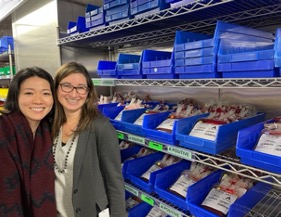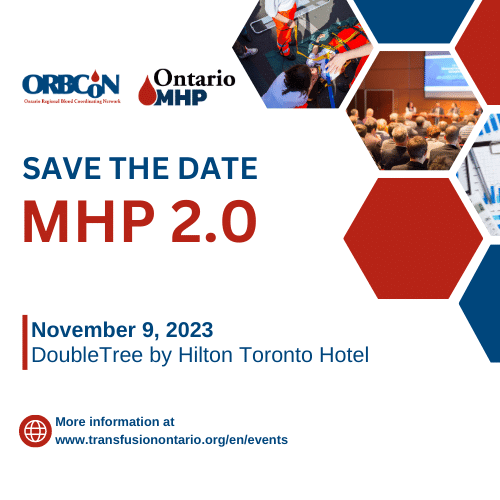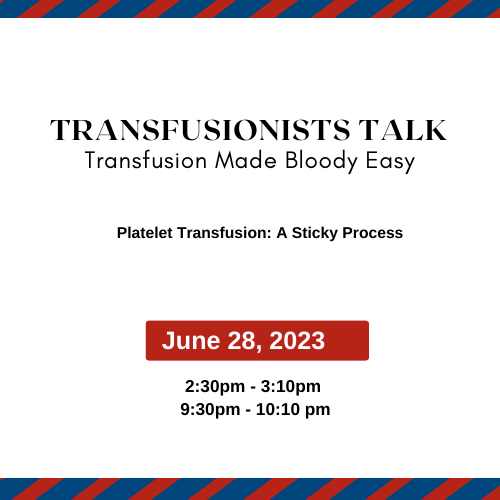Pathogen reduced platelets
Dr. Shuoyan Ning
Assistant Professor, Division of Hematology & Thromboembolism, Department of Medicine, McMaster University
Co-Director of Operations, Hamilton Regional Laboratory Medicine Program
Medical Officer, Canadian Blood Services
Dr. Michelle Zeller
Associate Professor, Division of Hematology & Thromboembolism, Department of Medicine, McMaster University
Co-Director of Operations, Hamilton Regional Laboratory Medicine Program
Medical Officer, Canadian Blood Services
Pathogen-reduced platelets are a new platelet component manufactured by Canadian Blood Services. There are two types of pathogen-reduced platelets: pooled platelets psoralen-treated (PPPT) and apheresis platelets psoralen-treated (APPT). PPPT was first introduced in 2022 at select hospitals, and national rollout is currently underway. APPT is pending Health Canada approval.
Cerus INTERCEPT Pathogen Inactivation Technology (PIT) is used to manufacture pathogen reduced platelets. Pathogen inactivation technology uses amotosalen and UV light to inactivate viruses, bacteria, protozoan parasites, and white cells. INTERCEPT has been approved for use in the European Union since 2002 and gained FDA approval in the United States in 2014. Clinical trials and large multinational hemovigilance databases have confirmed the excellent safety profile of this technology.
Key benefits of pathogen reduced platelets includes significant reductions in risks of bacterial transmission, lower risks of non-bacterial transfusion-transmitted infections, and fewer allergic reactions. White cells are inactivated during pathogen inactivation, rendering irradiation unnecessary. Furthermore, bacterial testing will not be required and thus platelet components will be released earlier in its shelf life to hospitals. On April 24, 2023, the shelf life of the PPPT product was extended from 5 to 7 days. Drawbacks of pathogen reduced platelets include a mild reduction in platelet count increments following transfusion compared to untreated platelets; there are no differences in bleeding outcomes in clinical trials. There is also no data available for patients undergoing intra-uterine transfusions, for which untreated platelets will be available upon request with advanced notice.
To learn more about pathogen reduced platelets, please visit the educational resources developed by an expert team at Canadian Blood Services on the professionaleducation.blood.ca website. Resources include a full chapter on pathogen reduced platelets, slide decks which are available for download and in narrated formats, videos on PPPT and APPT manufacturing, and a regularly updated FAQ document. All resources are available in English and French. There are also live townhalls that provide an opportunity for questions and answers; all are welcome to attend.

Newsboard
Save the Date
ORBCoN Fall Symposium

Save the Date
GHEST 2023

Upcoming Events
Register
Transfusionists Talk: Transfusion Made Bloody Easy
UofT TM Rounds
June 22, 2023 @12pm-1pm
Cultural Perspective of Blood Transfusion in Indigenous Communities by Ms. Krista Maracle
Subscribe to UofT Transfusion Medicine Rounds mailing list to get register

